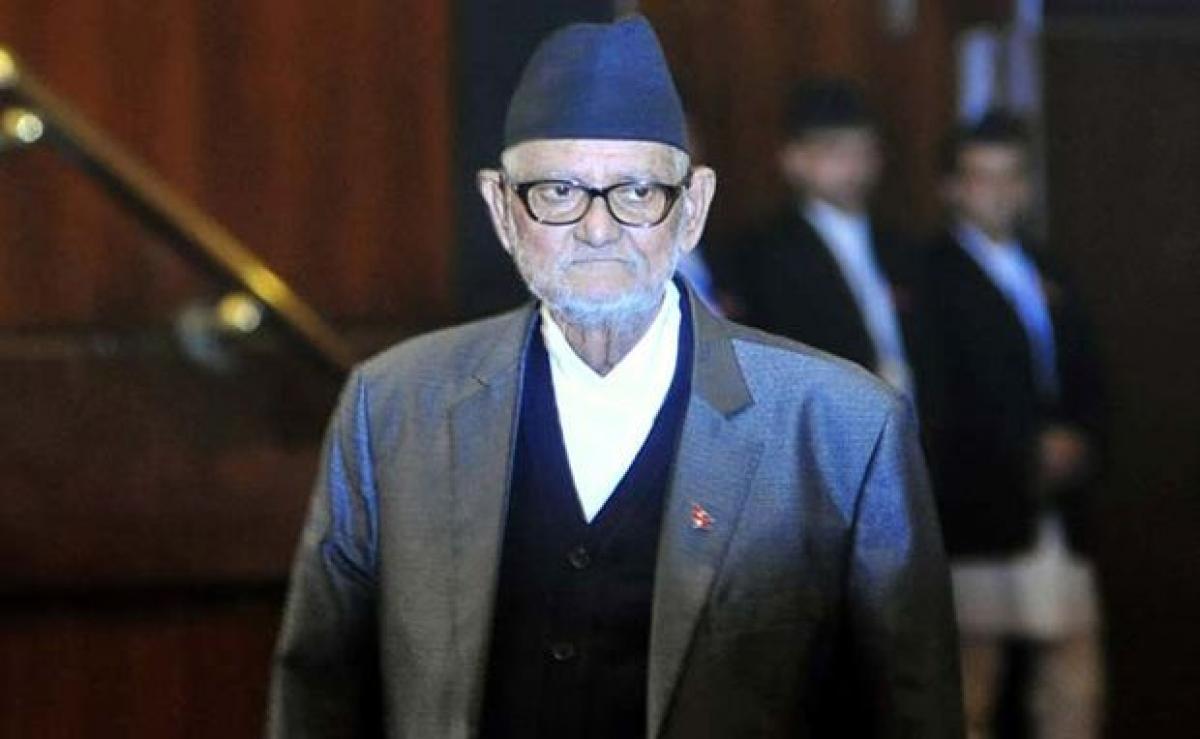Live
- Software Employee Commits Suicide in Miyapur Over Family Disputes
- Top 5 Reasons Why International Schools Are Ideal for Your Child
- Handloom Market Celebrates 10 Yrs
- IHM Hyderabad Hosts Spectacular Christmas Gala
- An Evening of Ethnic Elegance: Taruni’s Exclusive Fashion Showcase
- Style Banarasi with these 5 modern twist this wedding season
- Akansha flaunts seductive look
- Ajith requests fans to drop ‘Kadavuley’ tag, prefers simplicity
- ‘Pushpa 2’ BTS: Rashmika’s transformation as Srivalli
- Sreeleela inaugurates South India Shopping Mall at Ongole
Just In

x
Highlights
Nepal\'s parliament is set to vote for a new prime minister today, tasked with unifying the impoverished country after the adoption of a new constitution triggered street protests and a border blockade.
Nepal's parliament is set to vote for a new prime minister today, tasked with unifying the impoverished country after the adoption of a new constitution triggered street protests and a border blockade.

The parliament will choose between current premier Sushil Koirala and KP Sharma Oli of the Communist Party of Nepal (Unified Marxist Leninist) for the top post, with voting expected to start within the hour.
Koirala stepped down as required by the new constitution, which was adopted on September 20, and says a new government has to take over within weeks.
"So far it looks like Oli has the majority backing in the parliament, but it is hard to predict in politics," said Ameet Dhakal, editor in chief of online news portal Sepopati.
The winner needs to secure a simple majority of 299 votes in the 598-member parliament.
The constitution is aimed at bolstering the Himalayan country's transformation to a peaceful democracy after decades of political instability and a civil war.
But charter, the first to be drawn up by elected representatives, triggered a blockade along the border by protesters, cutting off fuel supplies from India and sparking a nationwide shortage.
Protesters from Nepal's southern plains are incensed about the charter which will divide the country into several federal provinces.
More than 40 people have been killed in clashes between police and protesters representing ethnic minorities who say the charter's new federal structure will leave them under-represented in the parliament.
The main political parties were spurred into agreeing on the charter, after years of bickering, following the earthquake in April that killed nearly 8,900 people.
The constitution is the final stage in a peace process that began when Maoist fighters laid down their arms in 2006 after a decade-long insurgency aimed at abolishing an autocratic monarchy and creating a more equal society.
"There are enormous challenges for the new prime minister. The public will also have high expectations. He will have to resolve the crisis the country is facing," Dhakal told AFP.

Next Story
More Stories
ADVERTISEMENT
© 2024 Hyderabad Media House Limited/The Hans India. All rights reserved. Powered by hocalwire.com







